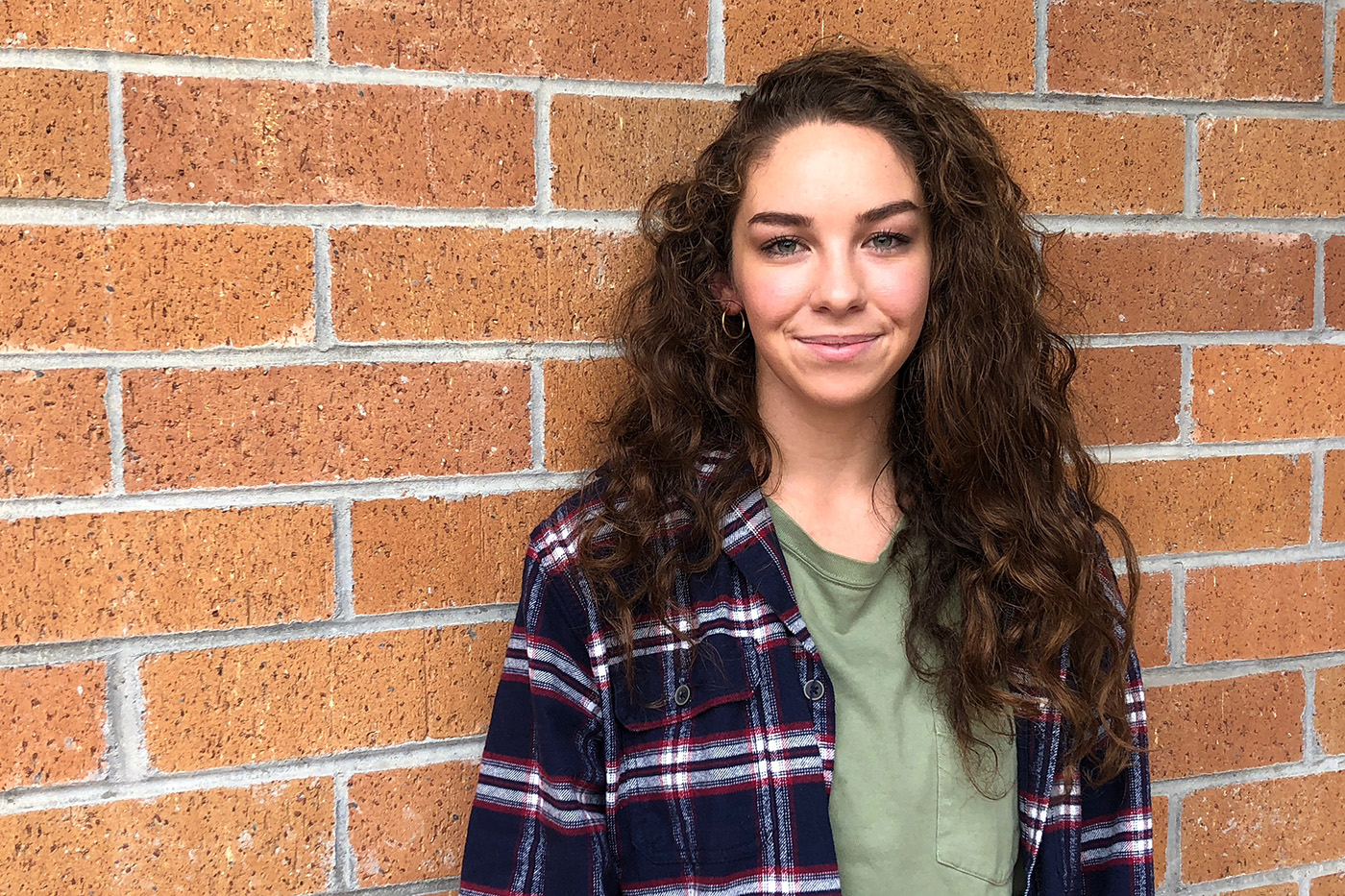In 1995, Safer — an on-campus confidential advocacy, education and support program concerning sexual assault, sexual misconduct, dating violence, domestic violence and stalking — painted red hands at reported sexual assault locations and started the Red Handprint campaign. Twenty-three red handprints appeared in buildings, residence halls and other places on campus.
In 2005, University Housing removed the red handprints due to concerns raised by parents and students about safety on campus.
Now, English senior Amelia Meyerhoff, a sexual assault survivor herself, is bringing back the Red Handprint campaign through her senior project.
“I wanted to bring back the red hand in this project, not only because it’s called the Clapback and [because] I want our voices to be like a slap in the face, [but because] I also want to honor the 23 survivors who may have felt invalidated at that time,” Meyerhoff said.
Her project called “The Clapback: An Investigation of the Sexual Assault and Rape Climate at Cal Poly San Luis Obispo” launched Monday. Meyerhoff’s investigation began in September 2018 and concluded in March. She conducted her investigation by interviewing 61 survivors who are Cal Poly students and alumni.
“I really wanted it to be a slap in the face,” Meyerhoff said. “You can’t ignore 61 people coming together.”
“I really wanted it to be a slap in the face. You can’t ignore 61 people coming together.”
Meyerhoff found participants by making posts in Cal Poly Facebook groups, presentations to sororities and by word-of-mouth. In their interviews, survivors shared with Meyerhoff the details of their assaults, how they navigated Cal Poly culture, how the experience of sexual violence impacts their daily life and where they find support and healing.
“When you sit down with a survivor and you look them in the eye and say, ‘Hey, I’m a survivor, too,’ there’s some sort of bond that you have,” Meyerhoff said. “It also was really helpful for us to foster a deeper connection within five minutes.”
Meyerhoff said the inspiration for her project stemmed from her experience as a survivor. She said she was raped in her sophomore year at Cal Poly, and a year later she sought support through group therapy for survivors held on campus. There, she said she realized testimonies from survivors can provide greater insight about the sexual assault culture at Cal Poly.
“When I started hearing about girls reporting to Title IX and not feeling as though they were getting justice through that and having to see their perpetrator everyday, that was not okay to me,” Meyerhoff said. “That’s really when I got the idea for this project.”
Meyerhoff said the purpose of the project is not only to empower survivors, but to also highlight the prominence of sexual violence.
Recently, the California State University (CSU) system mandated all campuses to stop current and appeal-pending Title IX sexual misconduct investigations while the CSU adopts a new investigative model. The new model would allow those accused of sexual misconduct to cross-examine their accuser.
Additionally, the new model reverses university sanctions, such as expulsion, in appeal-pending cases. This means that students once expelled through Title IX cases could re-enroll at Cal Poly beginning this quarter.
“This problem is going to get worse under the Title IX changes that have happened,” Meyerhoff said. “It’s just going to create a really unhealthy climate for survivors to come forward.”
The project
As of Monday, flyers and banners were placed around campus showcasing the red handprint and the link to Meyerhoff’s website.
On the website, viewers have access to the survivors’ testimonies. Not all of the testimonies are featured online due to privacy reasons, and the survivors remain unnamed.
Meyerhoff also pulled 26 categorical findings she found to continuously come up in her interviews. These include consent, coercion, Title IX, fraternities and intersectionality. Under each category, viewers can find quotes from testimonies that speak to that specific concept.
“It was very interesting to hear so many of the survivors say the same things,” Meyerhoff said. “We do go through completely different experiences.”
“It was very interesting to hear so many of the survivors say the same things. We do go through completely different experiences.”
Each of the participants vary in terms of ethnicity, sexual orientation and gender identity. According to Meyerhoff, there are two testimonies that came from men. The rest of the participants identify as women.
Meyerhoff added that almost all of the participants subsequently struggled with mental or physical health after their assault. She said people also struggled to keep up with their academics.
“I’m not here to say that this problem is going to get better,” Meyerhoff said. “It’s not … It’s disheartening to hear that 61 people have gone through this, and most of them don’t feel as though they have any justice.”
University Spokesperson Matt Lazier wrote in an email to Mustang News that the Safer program, New Student & Transitions Programs and other university programs play a key role in sexual assault education and support.
“These programs are ongoing, and the university reviews them constantly and listens to the concerns of its campus community members to determine how these efforts can continually be improved,” Lazier wrote.
Moving forward, Meyerhoff said she would like to see her project be used as an educational resource. Meyerhoff said she hopes people will respect her project and take the time to listen to survivors’ stories.
“It’s sad to me that I had to hear so many horrible stories and know that they’re struggling, but they’re also okay,” Meyerhoff said. “That’s why we’re called survivors. We go through a lot, then we come back, we bounce back and we’re ready to speak out now in this project.”

